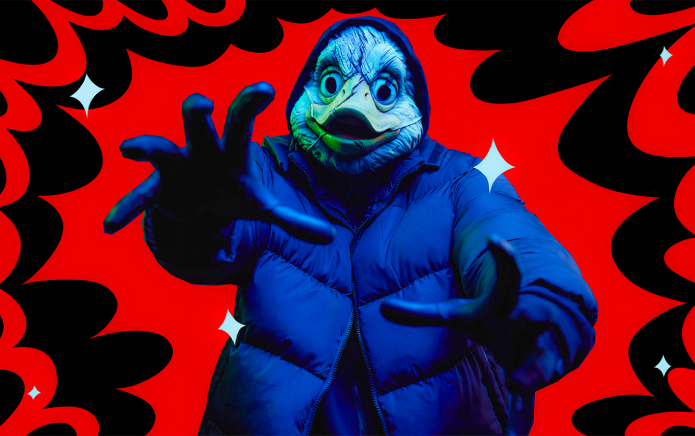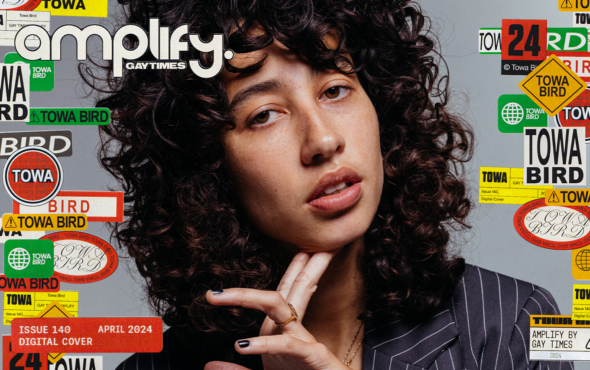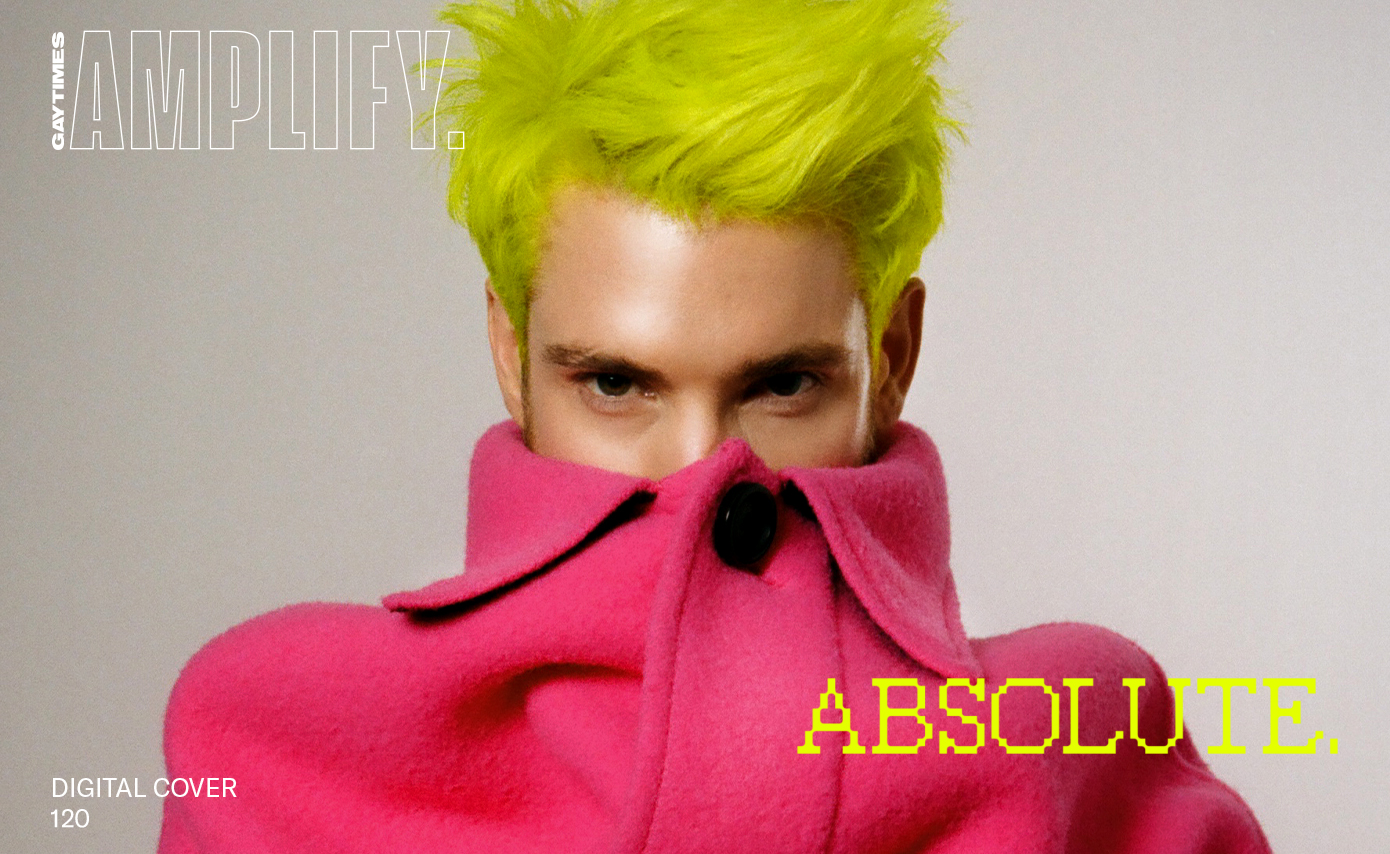
With pulsating dance-house bangers String Theory, Fauna and Stuck in Love, ABSOLUTE. is blazing a trail as one of the most innovative DJs and producers in the UK. As a small town “little queer kid” who would “haggle” for decks to beatmatch to Pete Tong, the London-based performer (birth name Anthony McGinley) didn’t envision a future where he would be remixing George Michael and raving with audiences around the world to his original electronic beats. This year alone, however, ABSOLUTE. has performed at Glastonbury, Printworks and DC10, in addition to touring Europe and the United States. Speaking from Mexico, the Torquanian artist and activist describes his “insane” year with GAY TIMES.
“[I’ve] got to play at so many places that have been on my bucket list,” he says over Zoom, just a few hours after he toured the pyramids and participated in a “drum ceremony in this ancient cave” with a spiritual healer. (He’s come a long way from Torquay!) “Also, I’ve met so many incredible people and we’re created such a nice bond that, not only am I getting to live my dreams, but I’m getting to do it with my best mates.”
Teasing a “next level” 2023 for his artistry, we caught up with ABSOLUTE. to discuss his dance music origins, how he found liberation through queer nightlife and why it’s crucial for him to use all the tools at his disposal to “create a more fun and equal society”.
As I was researching for this interview, I discovered that we were both born in Torquay. I’m a Paignton gal, however…
No way! Look at us, representing the English Riviera. I lived in Paignton for the first 17 years of my life and then I moved to Torquay. Do you ever go back?
All the time, my family is still there so I go back to QED when I can!
No way. I was really close to you. You know Totnes Road? I was five minutes away from the zoo. That’s so mad. No one’s from there!
No one. It feels weird to be interviewing someone who knows of and has most probably been to the Spinning Wheel?!
I know! We need to try and coordinate, then. We’ll have to have a night in the Bay.
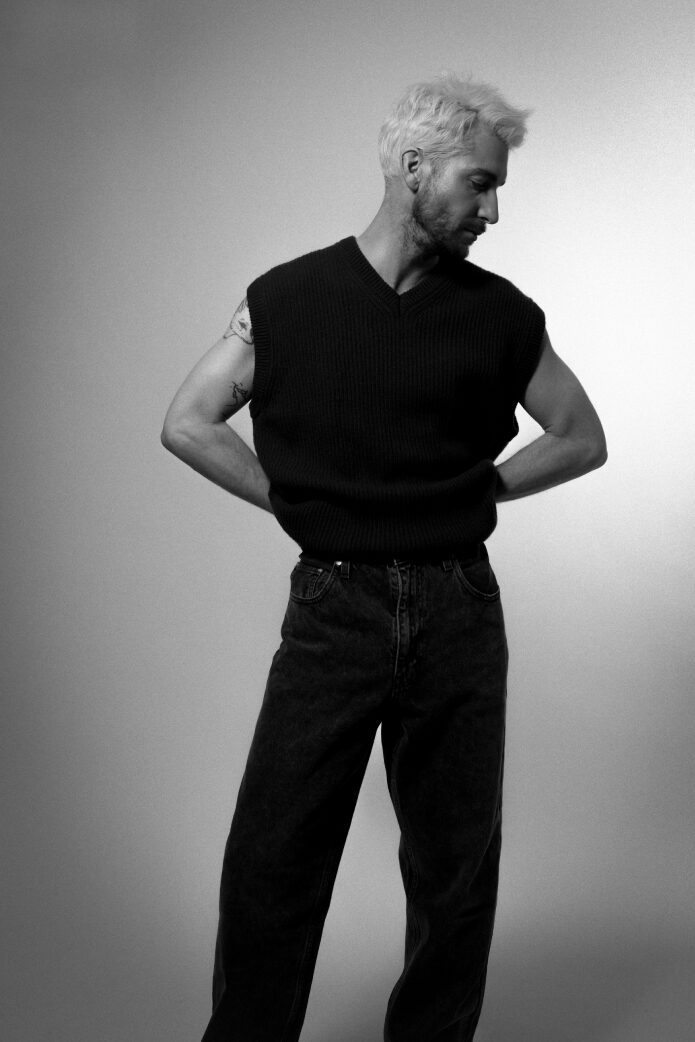
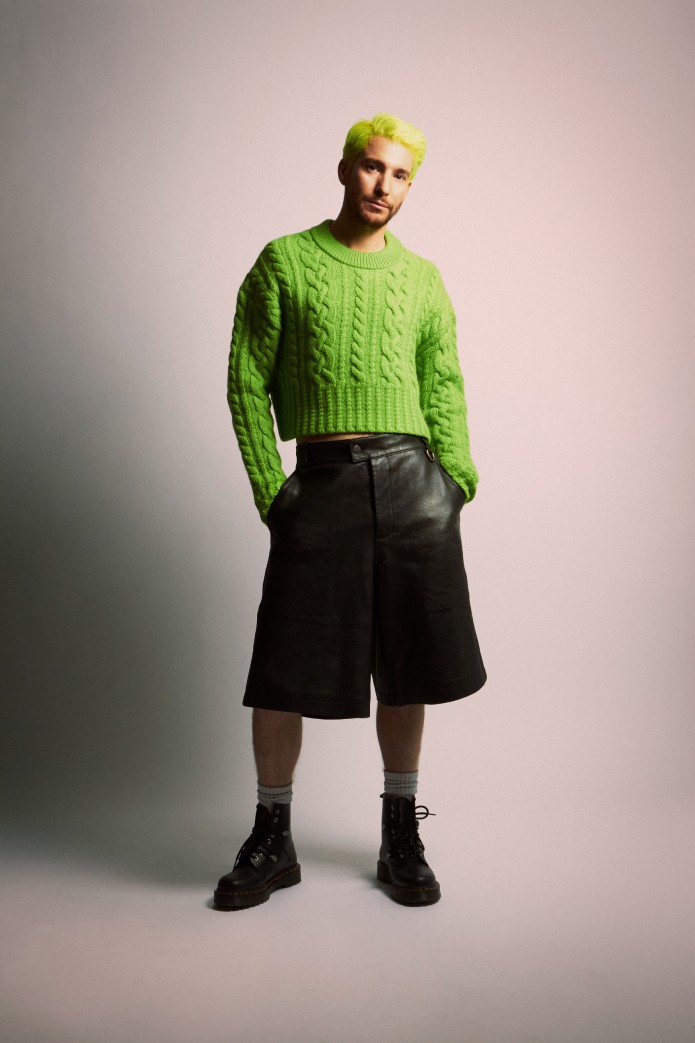
I wouldn’t even know where to go now?
To be honest, I haven’t really been to the clubs. Whenever I go back, I just stay at my mum’s and jump in the sea, rather than anything too wild.
Anthony, talk to me about your 2022? You’ve played Parklife, Printworks, Glastonbury…
It has been the most insane year. I couldn’t even imagine just how crazy it was gonna be. I got to play at so many places that have been on my bucket list. Especially after coming out of the pandemic, to then have all these boxes ticked… Glastonbury was one of the most magical experiences. Getting to play in America has been incredible. The crowd reaction has blown my mind. I didn’t expect it to be that wild. I feel like I’ve done pretty much every festival in the UK. I played in Ibiza, I did an essential mix for Radio 1, which was a huge bucket list moment. Also, I’ve met so many incredible people and we’ve created such a nice bond that, not only am I getting to live my dreams, but I’m getting to do it with my best mates. Every festival I’m at, there’s always at least two or three of my genuine best mates playing as well. That’s been the real icing on everything.
Wow, so you’ve done nothing at all this year, then?
It’s been terrible! It’s been awful.
Take me back to the start. Take me back to Anthony in Torquay. How did you first discover your love for dance music?
It came really early. It was actually at Torbay Carnival! Which I’m sure you’ve been to. I remember the floats coming through, the music was pumping. It was very camp. There was a full troupe of majorettes with the batons, twirling and getting their life. That, as a young queer kid, instantly excited me. In the background I heard Theme From S-Express, which filled me with this energy I’ve never really felt before from music. From that point, it’s always been about dance music for me. That ignited something. I would then go to Soundz, the local record shop in Torquay, and I would buy vinyls; even before I had decks to play it on.
I got some money from my dad to buy some clothes and I realised that, actually, I could buy one record deck – with a bit of haggling! Instead of buying the clothes that I needed, I went and bought one. My dad was fuming, but it carried on my passion. I would just listen to Pete Tong on Radio 1 and learn to beatmatch to his music, so it was like I was mixing into his tunes because I didn’t have, at the time, money for two decks. Finally, I got two decks and then it just continued on from there. My first gig came about from Soundz. The owner of the shop, Mike McGowan, he also ran a club called Claire’s, which I’m sure you went to back in the day.
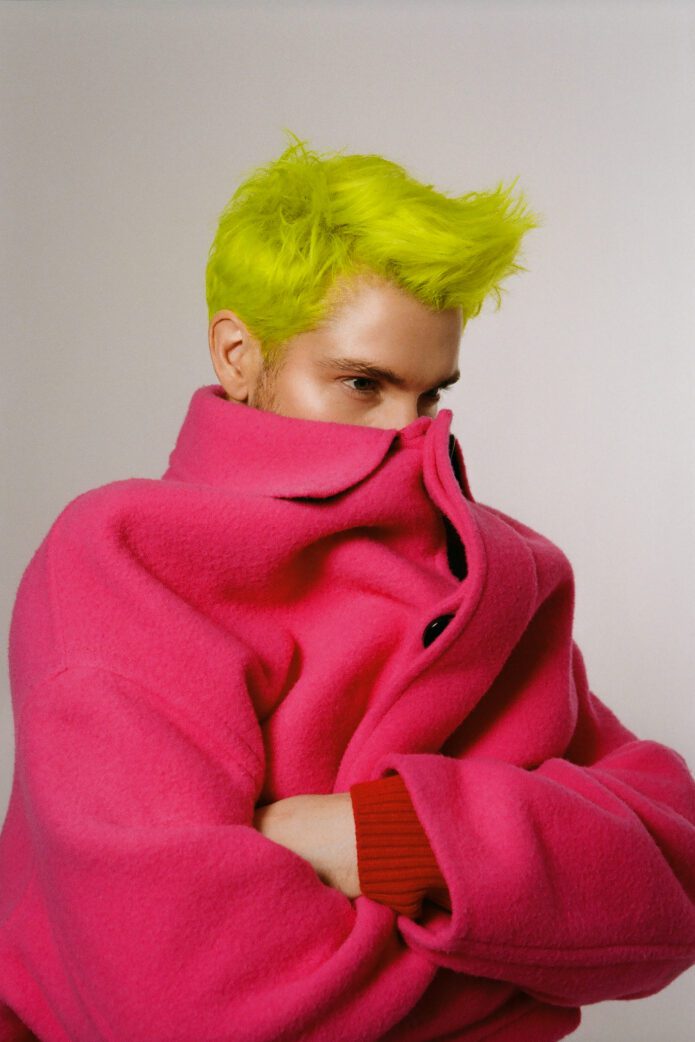
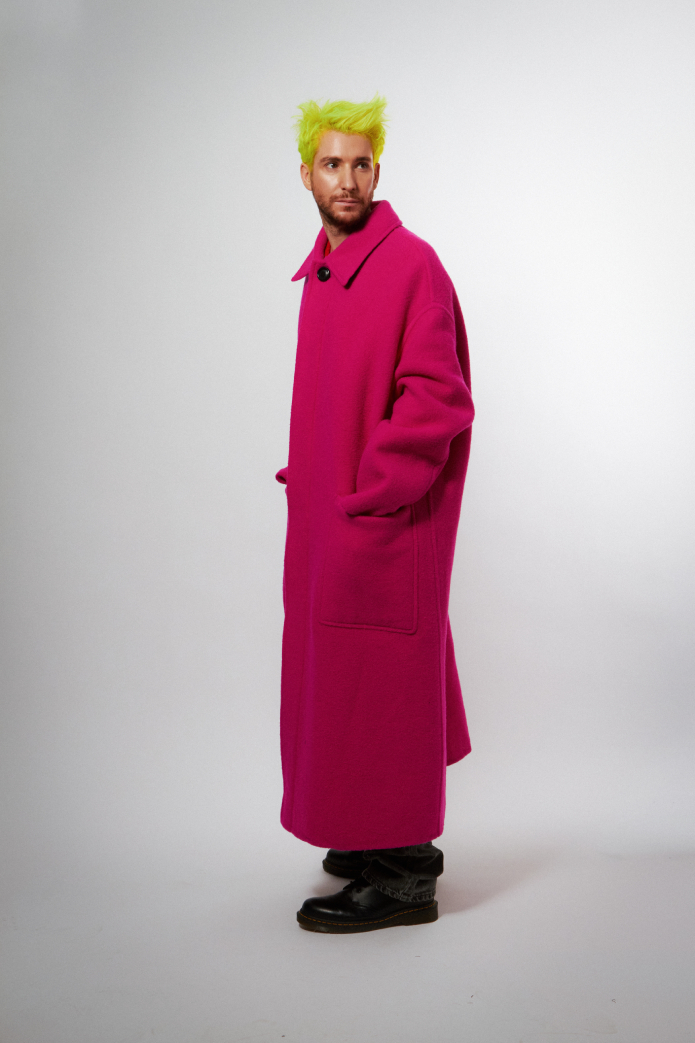
Oh I know Claire’s.
He offered me a gig at the club and that was my first ever gig. Surprisingly, back in the day in Torquay, they had a club called The Monastery, which was just past the bowling alley in a converted church. They would play hard house and trance and banging underground music. My mind was just blown. Everyone was dressed up as, like Club Kids, but Torquay’s version! Everyone was so welcome and it felt like a space where everyone came together. There were queer people, straights, all genders, which felt like safe space which, in Torquay, it didn’t feel like that was… happening? That had a profound impact on me and opened up the doors of what a dancefloor can do and how it can bring people together.
This is interesting to hear because I never associated Torquay with dance music and Club Kids and all of that. How did growing up in a seaside town on the English Riviera influence you as an artist?
It definitely took me a lot longer to realise that music could be a career or that I could be an artist, because that just didn’t happen there. There was no one to look up to, no peers doing something that I could aspire to. I just felt like a queer kid growing up in a small town. What it did have was The Monastery. Surprisingly, it did have an underground dance scene and I don’t think it exists there anymore, but it was the catalyst for me to move to London or somewhere else to keep fulfilling that.
It took me ages to even realise that I might be able to work in music and fulfil my dreams of being a DJ and music producer. That was probably the hardest part of growing up in a small town, you don’t really find your tribe. The first time I went to that club I was with a queer friend of mine and he thought Kylie was in there!
Minogue?! Kylie… Minogue? In Torquay?
Minogue. I was like, ‘Babe, we’re in Torquay. It’s literally 4am in the morning and we’re in a converted church called The Monastery. So, we go up to her and it’s obviously not Kylie, but it was a girl called Ellie who is now one of my best friends and has been since that day. Again, that showed me the power of what you can find on the dancefloor. You can meet your family, especially in the queer world when sometimes your own family don’t support you in the way that you need. That was another powerful moment.
Can you talk to me a little bit about your journey from playing at The Monastery in Torquay to playing at huuuge festivals such as Glastonbury and Printworks?
After DJ-ing for a couple of months, Bacardi threw a national DJ competition and one of them was in Torquay. I ended up winning. I took a leap of faith and moved to London and I started working at a DJ agency. It gave me a behind-the-scenes look at how the music industry and nightlife works.
I met an artist called Larry Tee, a queer legend who wrote RuPaul’s Supermodel (You Better Work). I started representing him and we began a club night together called Super Electric Party Machine, which was queer, East London, colourful. That was when I felt like I met my family, my queer tribe. That became a weekly party and from that, I met everybody in the scene. I started a different club night which was again, super colourful with Club Kids and drag queens. We took it to the Milkshake Festival in Amsterdam. That was amazing because I was solely working in music at that point, which felt incredible to achieve. But, something wasn’t quite there for me. I knew I wanted to be writing music and DJ-ing.
I had to take another leap of faith and started the ABSOLUTE. project. I put everything I could into doing that, which was scary because I didn’t know how I was gonna make money. I feel like each time I took a leap of faith, the universe came in and created these opportunities and supported me.
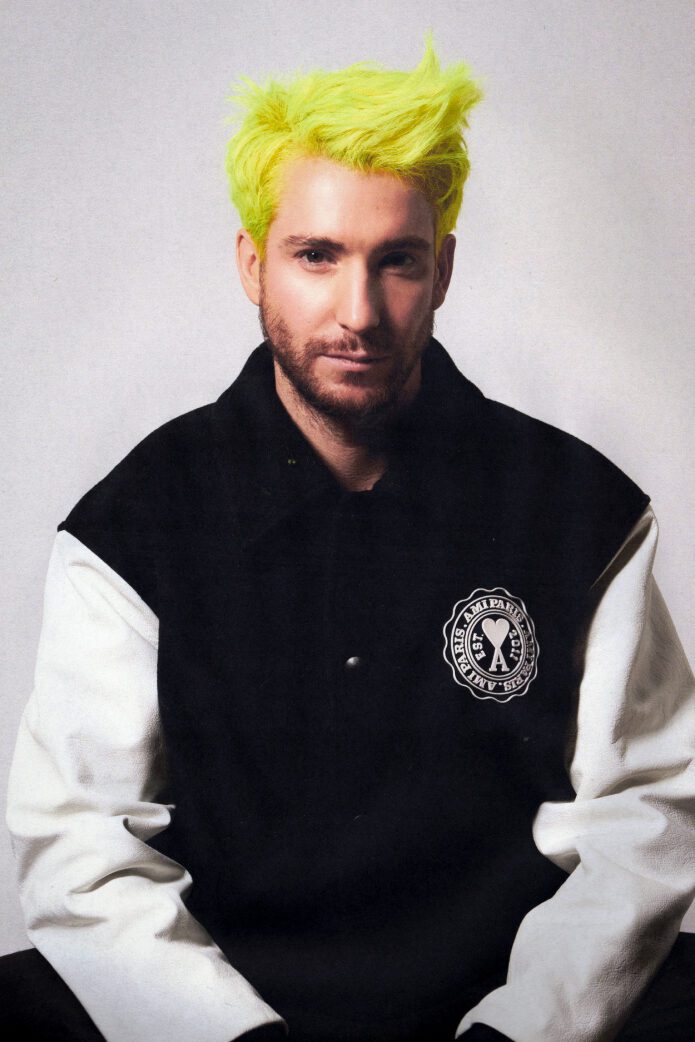
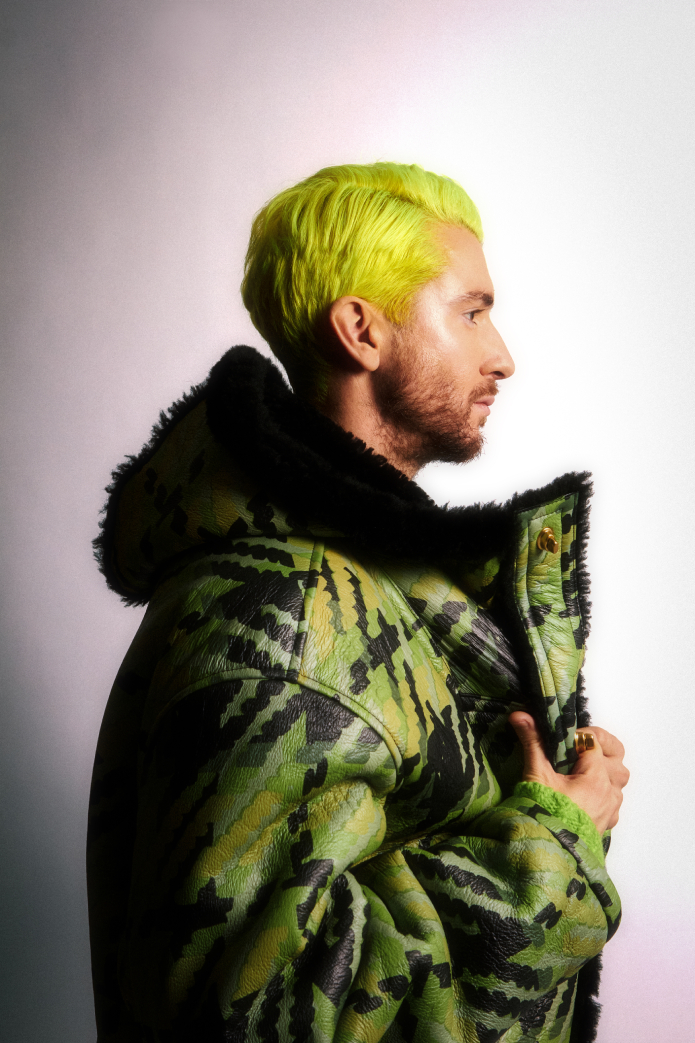
You’ve become known for your marriage of dance music and political activism. Do you remember when you first took notice of social and political injustices and how that impacted the activist and artist you are now?
It’s not necessarily about being a good artist, it’s just being human. Whoever you are as a person, you just use the tools around you to create change in a way that’s positive. It’s always been in my consciousness. Then, there was a documentary that David Attenborough did about climate change. Extinction Rebellion had just started getting momentum and did their first action in London, and then Greta [Thunberg] came on the scene. Those three things really sparked something in me to the point where I sampled part of Greta’s speech in a track. That track, called Rave Against the Machine, created a link with Extinction Rebellion and from there I wanted to do more to create positive change or an impact with the tools I had.
During one of the actions in London, the idea was to create a queer stage of music and bring in all the queer club brands and queer artists to raise awareness. Sadly, the police shut the stage down before we could even get it going. After that, I started planning Rave Against the Machine as a club night where we could create awareness for climate causes. That was just as the pandemic was hitting so we didn’t actually get to do that at the time. I guess I’ve always had an affiliation to wanting to help or to create a more fun and equal society, which is probably from growing up as a queer kid and not always fitting in. That fire has always been inside me.
There’s always been such a strong connection between the queer community and the dance genre. Throughout your career, how have you witnessed dance music impact the lives of queer people?
On a personal level, queer dance music is where I found my family. It’s where I felt I could actually achieve what I wanted to achieve. The queer underground music scene is how you can create your own families. It’s the most powerful and liberating experience when you do find that family and that crew of people which is often on a queer dancefloor.
It’s been so nice to start playing at queer events again. Homobloc was a magical day and night. It’s super inspiring to be around so many incredible queer artists. On this US tour, I played at a new party called Pegasus in LA. Queer parties are often the best because there’s liberation on the dancefloor, which people don’t always have.
Last year, you released your first major collection Wonderland. Was this recorded during the pandemic?
Yes! The Wonderland collection was written all in my bedroom during the pandemic.
How did you find creativity during that time?
I was just starting to pop as lockdown went into effect. I had a track, String Theory, that Pete Tong made an essential tune and Annie Mac was playing every week on the radio. It was getting a lot of buzz and then I did a Mixmag Lab and was just about to start touring the UK. Then, everything shut down. I’ve been working my entire life to get to that point. It was soul destroying at first. It really did knock me and it took a couple of months before I could start even thinking about creating again. I did a course about the philosophy of making music and I ended up writing 100 track demos in two weeks. That became the seed of Wonderland. Writing it, it felt like a release and it got me through the pandemic. There was a lot of pent up energy and feeling trapped and wanting to be freed, which was channelled into writing that mixtape.
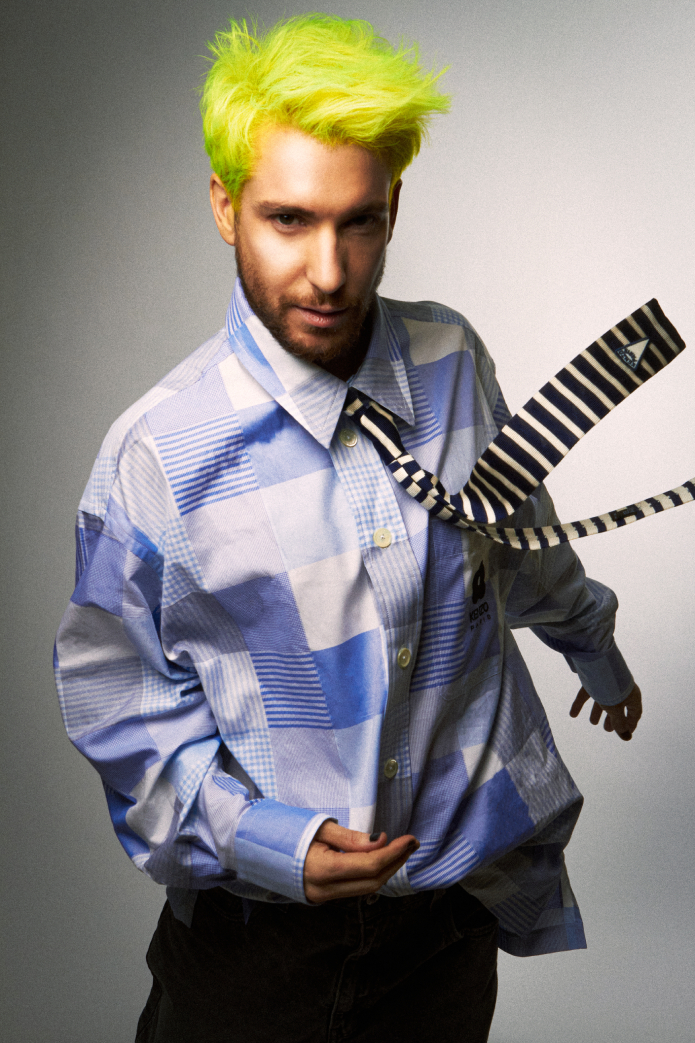
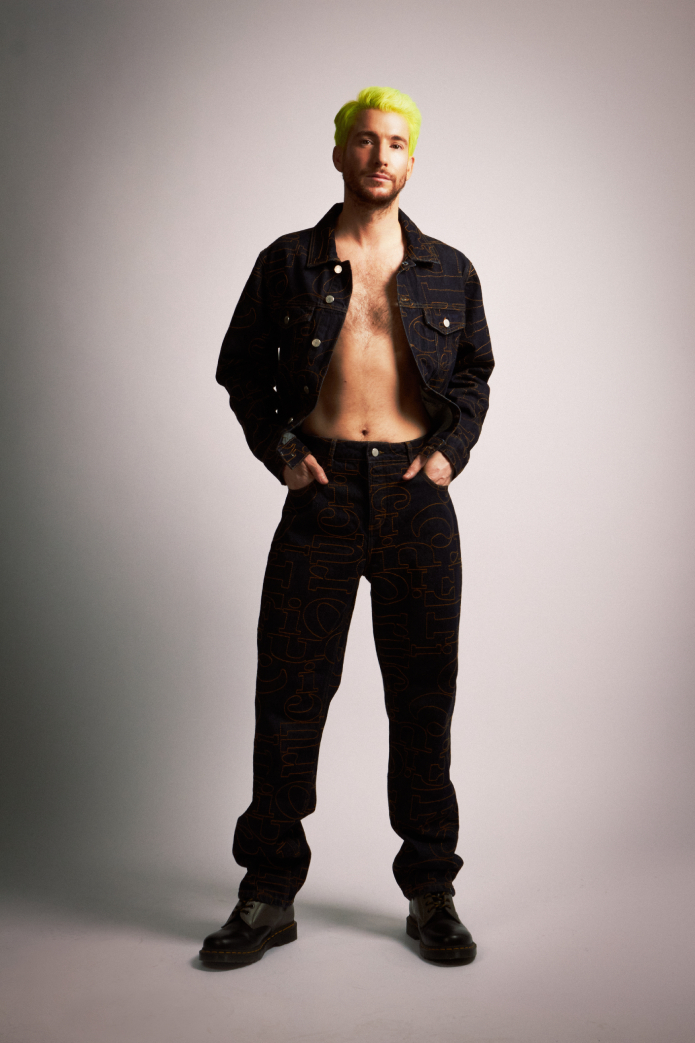
I read that you have been working on tracks with your own vocal, but there’s some fear and trepidation there? Why is that?
There are tracks that I’ve been writing that I have been singing on, which are to come. My next single, Voices, is coming out in January. Originally, I did the vocal on that and as I was writing it, there was another vocalist that came in and sang those parts and I was like, ‘Actually, she sounds so much better than me!’ I guess it’s vulnerability. It opens yourself up. As artists, it’s vulnerable working on something and putting it out there. Once it’s out there, you have no control over how it’s going to be received and it’s scary.
Then, putting your voice on top of that, it’s whole another layer of vulnerability and it’s scary as fuck. It’s definitely something that is going to happen. Part of it was just that I was in lockdown and I didn’t have access to any singers. I would hear a song in my head after writing the music so it came through necessity, rather than something I would have chosen to do. Now that I’ve broken that seal, I think it’s been a really exciting way to explore writing outside of what I’m used to.
It sounds like you’ve had your best year, professionally, so how are you going to top that in 2023? Tell me. What are your aims?
Good question! Next year already feels even more exciting. I’ve got some collaboration projects that I can’t talk about yet, but there’s a few artists that I’m working with who I’m blown away by. The next thing that comes out is Voices, which is end of January. Before the year’s out, I’m going to be co-hosting a show with Sarah Story on Radio 1 on the 16th of December which, again, to do a show on Radio 1… I used to listen to Radio 1 and beatmatch with my one record deck. Also, as soon as I met Sarah Story, we became besties. She’s an incredibly close friend and I’m glad I get to do it with her in my first foray into doing a show on Radio 1.
Next year, I’ve got a Canada and US tour at the end of January. When I come back, we’re straight into a tour of New Zealand and Australia. Then it’s Europe, USA again… It’s pretty insane. And like I said, the music projects I’m working on, it’s just taking it up to the next level. It’s already feeling like it’s going to be a better year than this, which I find hard to believe because this year has been a dream come true.
A long way from Torquay…
Just little old me from Torquay! It does feel mad, thinking back. I’m just incredibly grateful for all of those years with one deck, beatmatching to the radio as a little queer kid in a small town. I get to share my music and my passion with people across the globe, it feels incredible.
